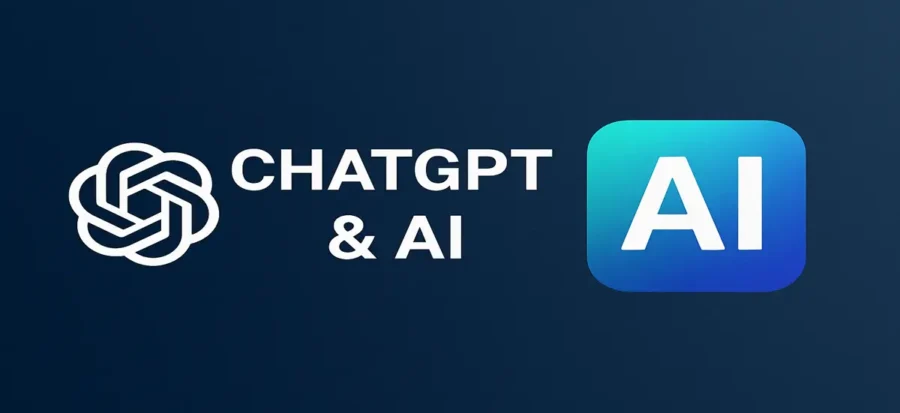How to Use ChatGPT and AI for SEO: 15 Powerful Strategies
Search Engine Optimization (SEO) has always required research, creativity, and consistency. But in today’s digital world, the landscape is changing faster than ever. The rise of ChatGPT and AI for SEO is transforming how marketers approach keyword research, content creation, and optimization.
While some still hesitate, thinking AI will replace human expertise, the truth is different. AI isn’t here to eliminate SEOs—it’s here to empower them. By combining ChatGPT and AI for SEO with human judgment, strategy, and creativity, you can save hours of manual work, scale content production, and stay competitive in crowded search results.
In this blog, we’ll explore 15 practical ways to use ChatGPT and AI for SEO, complete with prompt examples you can start using today.
1. Keyword Research Made Easy
Finding the right keywords is the foundation of SEO. Instead of relying solely on traditional tools, you can use ChatGPT and AI for SEO to expand seed keywords into hundreds of variations.
Example Prompt:
“List 20 long-tail keywords similar to ‘ecommerce SEO’ with traffic potential.”
This helps you uncover new search opportunities that you may miss with manual methods.
2. Keyword Clustering
One blog targeting a single keyword is outdated. Today, search engines reward topic authority. ChatGPT and AI for SEO can cluster keywords into themes, allowing you to create comprehensive content hubs.
Example Prompt:
“Cluster these 30 keywords into 5 groups based on search intent.”
This ensures every blog post supports a larger SEO strategy.
3. Search Intent Labeling
Not all keywords serve the same purpose. Some are informational, others are transactional. ChatGPT and AI for SEO can categorize keywords into intent buckets like Informational, Commercial, or Transactional, so you know exactly what type of content to create.
Example Prompt:
“Categorize these 25 keywords into intent types with reasoning.”
4. Content Ideation
Struggling with fresh blog ideas? AI can help you brainstorm endless content opportunities. With ChatGPT and AI for SEO, you can quickly generate blog, landing page, and resource ideas around your target topics.
Example Prompt:
“Give me 10 blog ideas for ‘AI in SEO’ targeting SaaS founders.”
5. Blog Title Creation
Your title is the first thing readers and search engines see. Instead of wasting time brainstorming, you can use ChatGPT and AI for SEO to create multiple title variations that are catchy, keyword-rich, and optimized for clicks.
Example Prompt:
“Create 10 engaging listicle titles for ‘SEO content strategy’.”
6. Outline & Subtopics
Great content needs structure. With ChatGPT and AI for SEO, you can build H1, H2, and FAQ outlines before writing. This ensures your article covers every important angle and increases your chances of ranking higher.
Example Prompt:
“Build a content outline for the keyword ‘best SEO tools 2025’.”
7. First Draft Writing
AI won’t replace your voice, but it can save time by generating drafts. With ChatGPT and AI for SEO, you can spin up 1,000-word articles in minutes and then refine them for accuracy, brand tone, and depth.
Example Prompt:
“Write a 1,000-word blog post for ‘technical SEO checklist’ with bullets and examples.”
8. Metadata Generation
SEO-friendly metadata is crucial for click-through rates. Instead of writing them manually, use ChatGPT and AI for SEO to create SEO titles and meta descriptions at scale.
Example Prompt:
“Write 5 meta descriptions under 155 characters for ‘AI SEO tools’.”
9. Content Optimization
Even well-written blogs can underperform without optimization. By using ChatGPT and AI for SEO, you can rewrite sections for clarity, shorten long paragraphs, and add entities that boost on-page SEO.
Example Prompt:
“Rewrite this blog section to be shorter, clearer, and optimized for ‘E-E-A-T SEO’.”
10. E-E-A-T Enhancement
Google prioritizes Experience, Expertise, Authoritativeness, and Trust (E-E-A-T). With ChatGPT and AI for SEO, you can find ways to layer real-world experience, data, and credibility into your articles.
Example Prompt:
“Suggest ways to add first-hand experience to this article about link building.”
11. Internal Linking Suggestions
Internal links strengthen site structure and improve rankings. ChatGPT and AI for SEO can scan your existing blogs and suggest linking opportunities between related posts.
Example Prompt:
“Suggest 5 internal linking opportunities between these blog URLs.”
12. Competitor Content Gap Analysis
Outranking competitors means spotting gaps in their strategy. Instead of manually scanning hundreds of pages, you can use ChatGPT and AI for SEO to highlight missing topics you can cover.
Example Prompt:
“Analyze competitor.com/blog and find 10 content gaps we can cover.”
13. Repurposing Blog Content
A single blog can become multiple social posts, threads, or even videos. With ChatGPT and AI for SEO, you can repurpose blogs into LinkedIn carousels, Twitter threads, or YouTube scripts.
Example Prompt:
“Rewrite this blog intro into a 7-post LinkedIn carousel script.”
14. Featured Snippet Optimization
To win Google snippets, answers must be concise and clear. You can use ChatGPT and AI for SEO to rewrite responses in snippet-friendly formats.
Example Prompt:
“Write a 45-word answer for ‘What is technical SEO?’”
15. Backlink Outreach Drafting
Link building is time-consuming. With ChatGPT and AI for SEO, you can draft polite outreach emails that save time and improve response rates.
Example Prompt:
“Write a polite email asking to add our guide to their resources page.”
Why AI Won’t Replace SEOs
It’s important to remember: tools like ChatGPT and AI for SEO are not replacements for human expertise. They speed up repetitive tasks, but true SEO requires strategy, brand voice, and judgment.
AI can:
- Save hours on research and writing
- Generate data-driven suggestions
- Scale production efficiently
But only humans can:
- Add an authentic experience
- Build trust with audiences
- Make strategic business decisions
That’s why SEOs who embrace ChatGPT and AI for SEO will always stay ahead of those who don’t.
Conclusion
The future of SEO is not just about keywords and backlinks—it’s about efficiency, intelligence, and adaptability. By combining ChatGPT and AI for SEO with human creativity and strategy, you can create high-quality content faster, optimize smarter, and dominate search rankings.
Instead of fearing AI, smart marketers should embrace it. The ones who learn to mix expertise with automation will always win in the long run.








